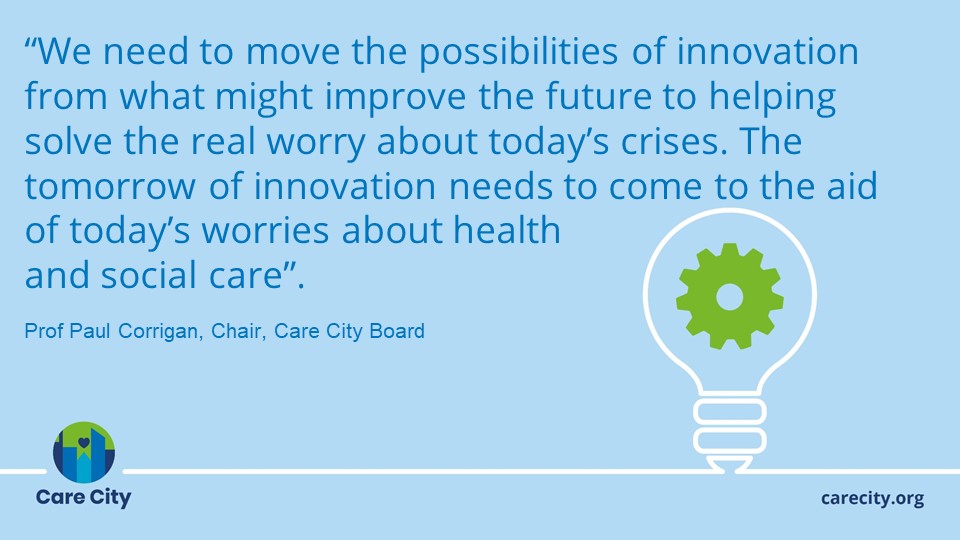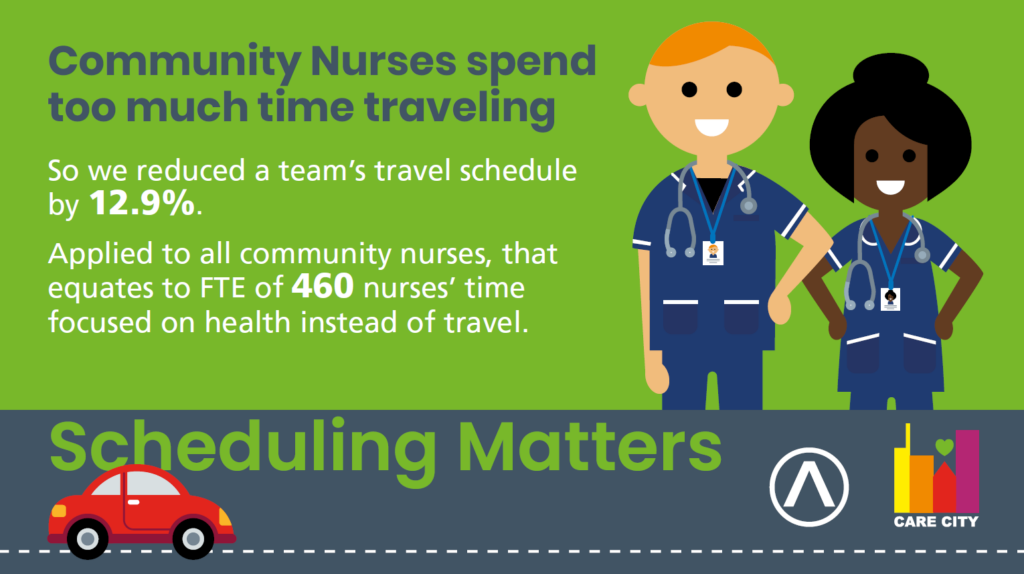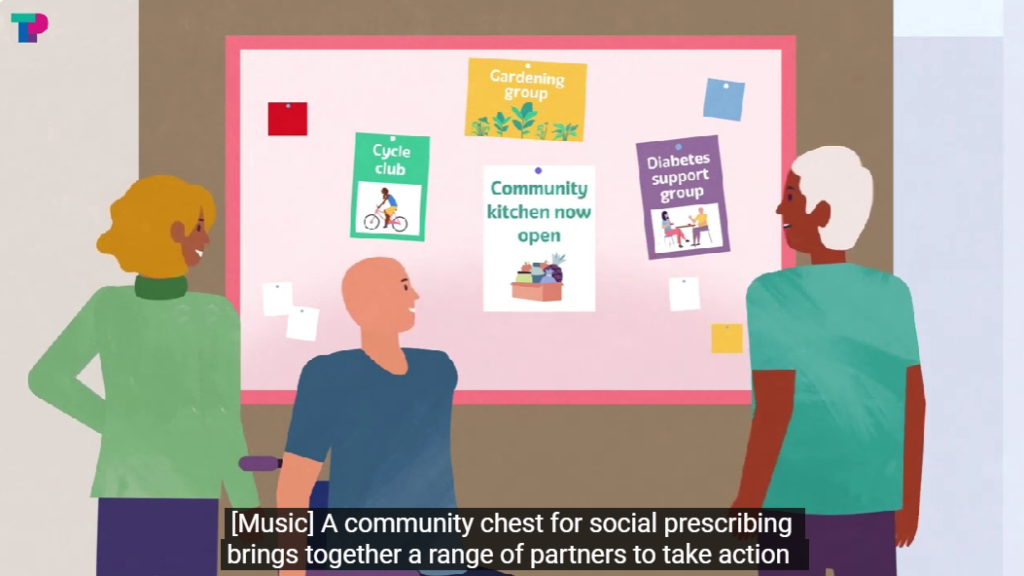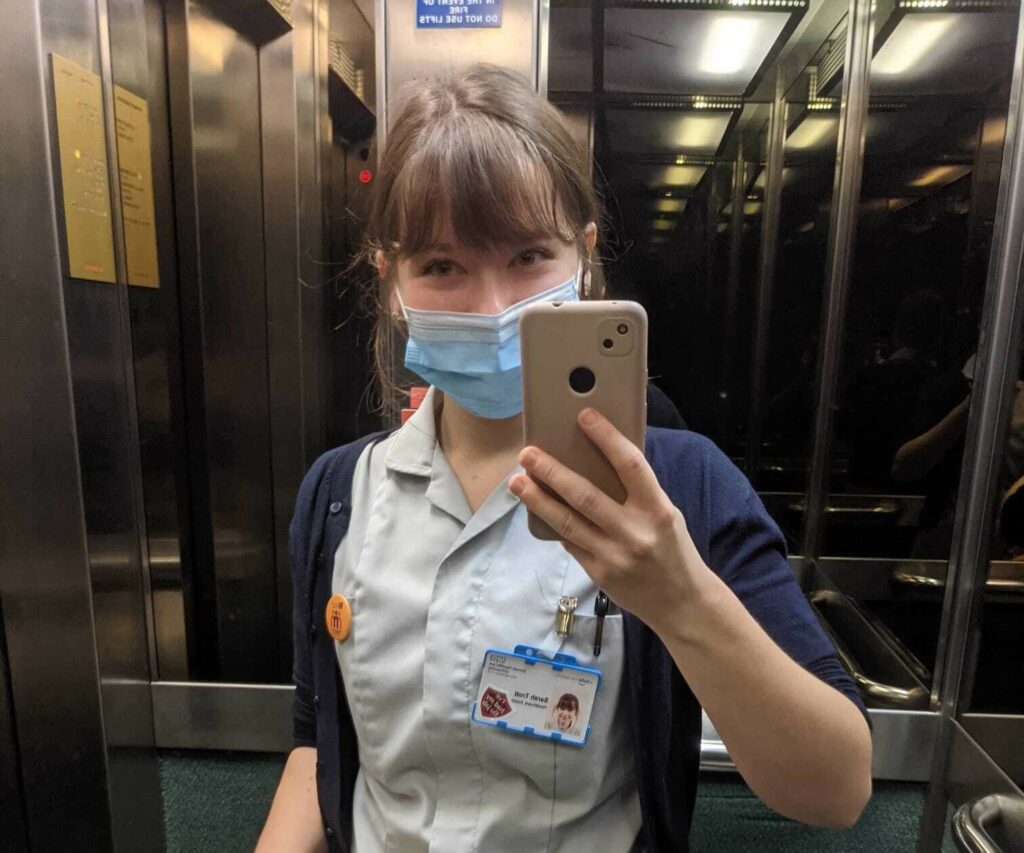The ‘tomorrow of innovation’ needs to come to the aid of health and social care today

Read Paul Corrigan’s latest blog on how Care City is innovating for today.
Innovation is something that most of us think just happens in the future world. It’s only something to worry about in the world of tomorrow. We hear lots of stories about how digital technology will change how we are looked after in the future. For those of us interested in health and social care today I am worried about the world today.
And as we worry about today, we move away from thinking about ideas of digital technology to the current crisis of a lack of staff. When we look at the consequent crises facing health and social care today, we don’t think about innovation, we just worry.
But for people interested in innovation, that’s a big part of the problem. For as long as we think of innovation as just about the future, then I’m afraid there is not much else we can do about the crises of the present except just worry.
What we need to do is move the possibilities of innovation from what might improve the future to helping solve the real worry about today’s crises. The tomorrow of innovation needs to come to the aid of today’s worries about health and social care. And that’s what Care City is set up to work on.
One of the biggest problems for the NHS and social care is that there simply aren’t enough staff to meet the increasing needs that come from an ageing population. If in 2023 we were to double the number of people going into training (as some suggest) that would increase the number of community nurses in 4 or 5 years and the number of doctors in 10 or 12. These would be very important additions to the medium and longer term but not doing much about the problems of today.
For today we need to make much better use of the staff we have. We need to support them to spend more time doing what they really want – caring for people. We need to make sure that they are providing care for as much of their work time as possible. Care City is working on projects across East London which use digital technology to move this forward.
Giving Care Homes access to the London Care Record
Social Care providers require access to shared care records to improve the quality of care for their clients, reduce hospital admissions and support safe and timely discharge. Across London, NHSE have been piloting access to the London Care Record for Care Homes and Care City are going to be supporting the scaling of this work along with supporting the vital work of expanding this access to domiciliary care providers. This will dramatically reduce the amount of time that care providers have to spend gathering information from various sources. This is NOT just about shiny technology but would release real ‘time to care’ for more patients.
Automating scheduling of District Nurses
Second we found that on their rounds seeing patients in the community, district nurses would spend too much time criss-crossing the local area. In other services – such as package delivery they have developed scheduling technology which automates an efficient process.
We piloted AI innovation from Satalia with the North East London Foundation Trust and University College London, looking at a method of scheduling district nurse visits that had worked in these package delivery services. Automating scheduling for a complex District Nursing team, reduced hours they had spent coordinating their ‘rounds’ into just a few minutes. Schedules could be changed immediately if a nurse wanted to spend more time with a particular patient. Most importantly, unlike other systems where nurses have to rework schedules made by the computer as they were unrealistic, nurses felt that the Satalia AI reflected the decisions they personally would have made.

The technology tool helped us reduce the staff needed to carry out current care tasks by 9%, that’s the equivalent of freeing up 40,500 staff to deliver more care. That’s staff hours to deliver care today, not in 5 years’ time.
Growing BHR’s AHP workforce
One of the groups of NHS staff that we most depend on, rarely get much of a mention – Allied Health Professionals (AHPs). We come across them as, for example, physiotherapists, dieticians, speech therapists and podiatrists. They are absolutely vital to making a speedy recovery for any major ill health event.
But as with so many skilled staff, there are just not enough of them. Across Barking Havering and Redbridge, there are increasing vacancies but simply not enough qualified AHPs to fill them. It’s a waste of resources for these three boroughs to spend time and effort competing against each other to try and get people that just don’t exist to apply for jobs.
Whilst AHPs are being trained they need locations for their work experience and these three boroughs play a role in providing that experience. It is often the case that after they qualify, trained professionals want to work in the locations where they have had good work experiences.
Therefore we are working with BHR Academy to standardise their approach to optimise work experience placement and to assist in standardising their framework for the AHP work. Through this we will increase not just the numbers of AHPs taking part in work experience in our locality but will improve their experience of it. This will increase the number of qualified staff working in our borough not in five years’ time but much sooner.
There are too many problems facing health and care that need solutions today, not in a few years’ time. That’s what innovation means at Care City.


